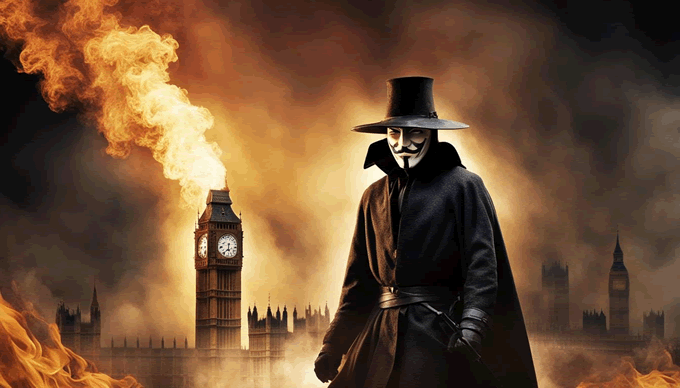
🎇 The Prelude: A Powder Keg of Plots
In the early 17th century, England was a tinderbox of religious tension. Following Henry VIII's establishment of the Church of England, Catholics found themselves increasingly sidelined and persecuted. By the time James I took to the throne in 1603, hopes were high amongst Catholics that the new king might be more tolerant. Spoiler alert: he wasn't.
Enter Robert Catesby, a man with a plan so audacious it could only be called, well, the Gunpowder Plot. Catesby, alongside a band of fellow conspirators including the infamous Guy Fawkes, devised a plan to blow up the Houses of Parliament during the state opening, thus killing the king, his family, and many of his Protestant lords and bishops. The aim? To spark a Catholic uprising across England.
The Assembly of the Conspirators
The plotters were a mixed bag of zealots, soldiers, and gentlemen, with Guy Fawkes being their explosives expert. Fawkes, with his military background and experience in the Spanish Netherlands, was tasked with the nitty-gritty of the operation: guarding the 36 barrels of gunpowder they had smuggled into a cellar under the House of Lords.
💣 The Night of November 4th: Fawkes's Fateful Watch
As the 5th of November, 1605, approached, the plotters put their plan into motion. Guy Fawkes, under the alias John Johnson, took his position in the cellar, ready to light the fuse that would change history. However, as we all know, history had other plans.
The Plot Unravels
The scheme began to unravel when an anonymous letter, warning a Catholic lord to stay away from the Parliament, made its way to the King. The letter's vague warnings piqued the King's interest, leading to a search of the parliamentary buildings. In the early hours of November 5th, authorities found Fawkes lurking in the cellar, surrounded by barrels of gunpowder, a pile of firewood, and matches in his pocket. Talk about being caught red-handed!
🚨 The Aftermath: Treason and Bonfires
Guy Fawkes's capture led to a swift unraveling of the conspiracy. Tortured into confession, Fawkes revealed the names of his fellow plotters, who were then rounded up, tried, and executed in the gruesome fashion of the time.
A Legacy of Fireworks and Folly
The failure of the Gunpowder Plot had long-lasting repercussions. November 5th was declared a day of thanksgiving, and to this day, Brits across the country celebrate Bonfire Night with fireworks, bonfires, and effigies of Guy Fawkes. It's a night filled with sparkle and spectacle, all thanks to a plot that went up in smoke.
